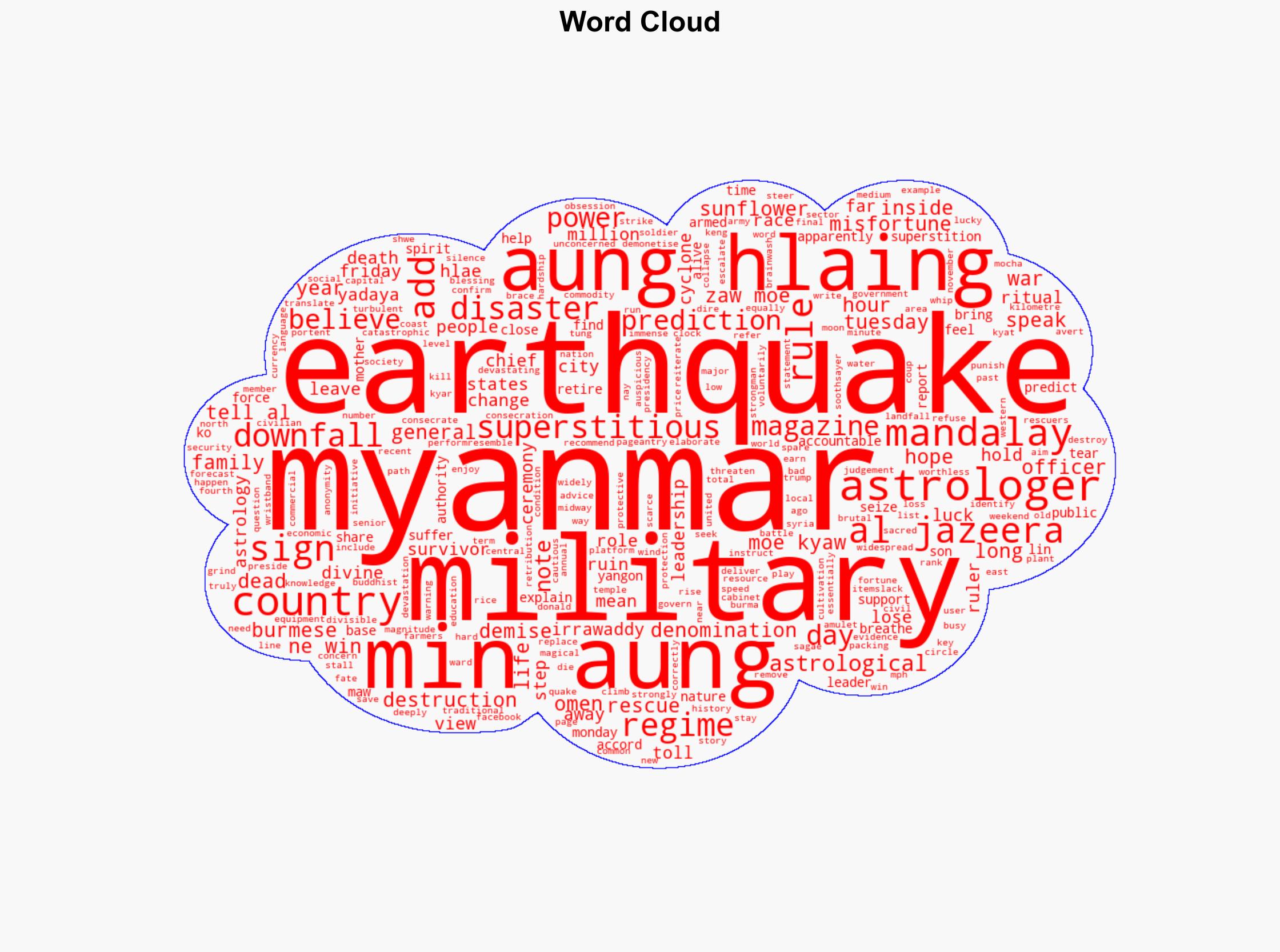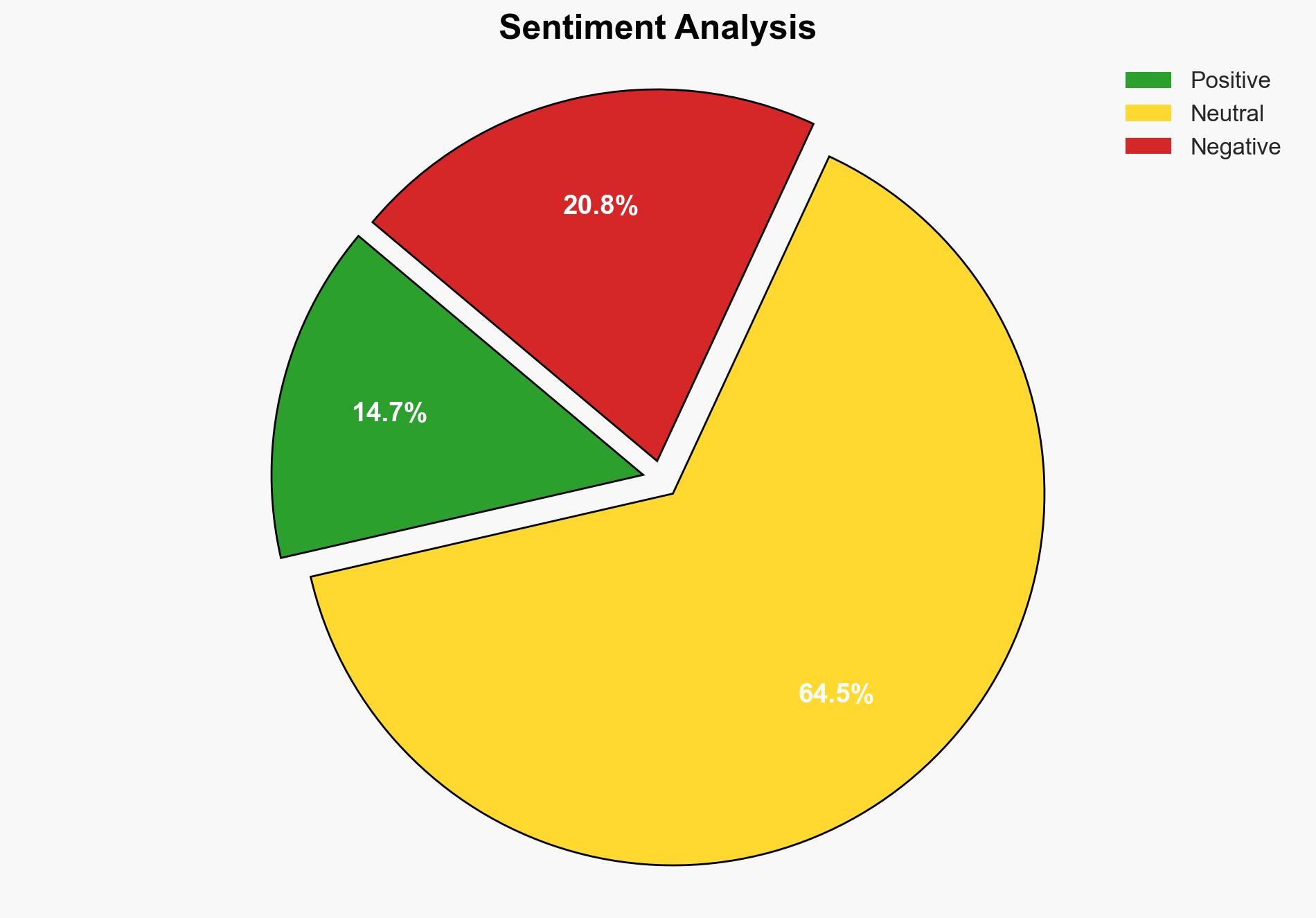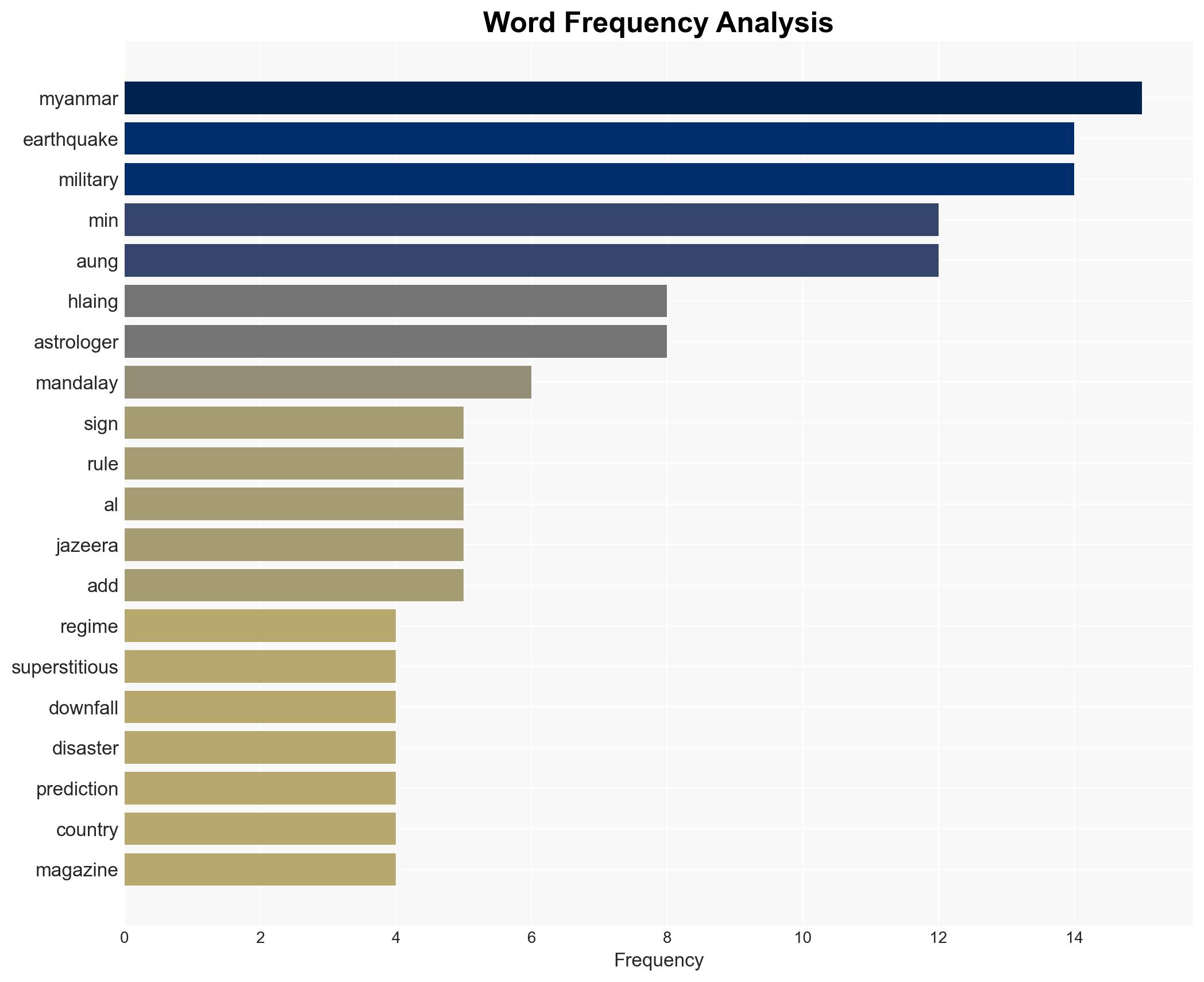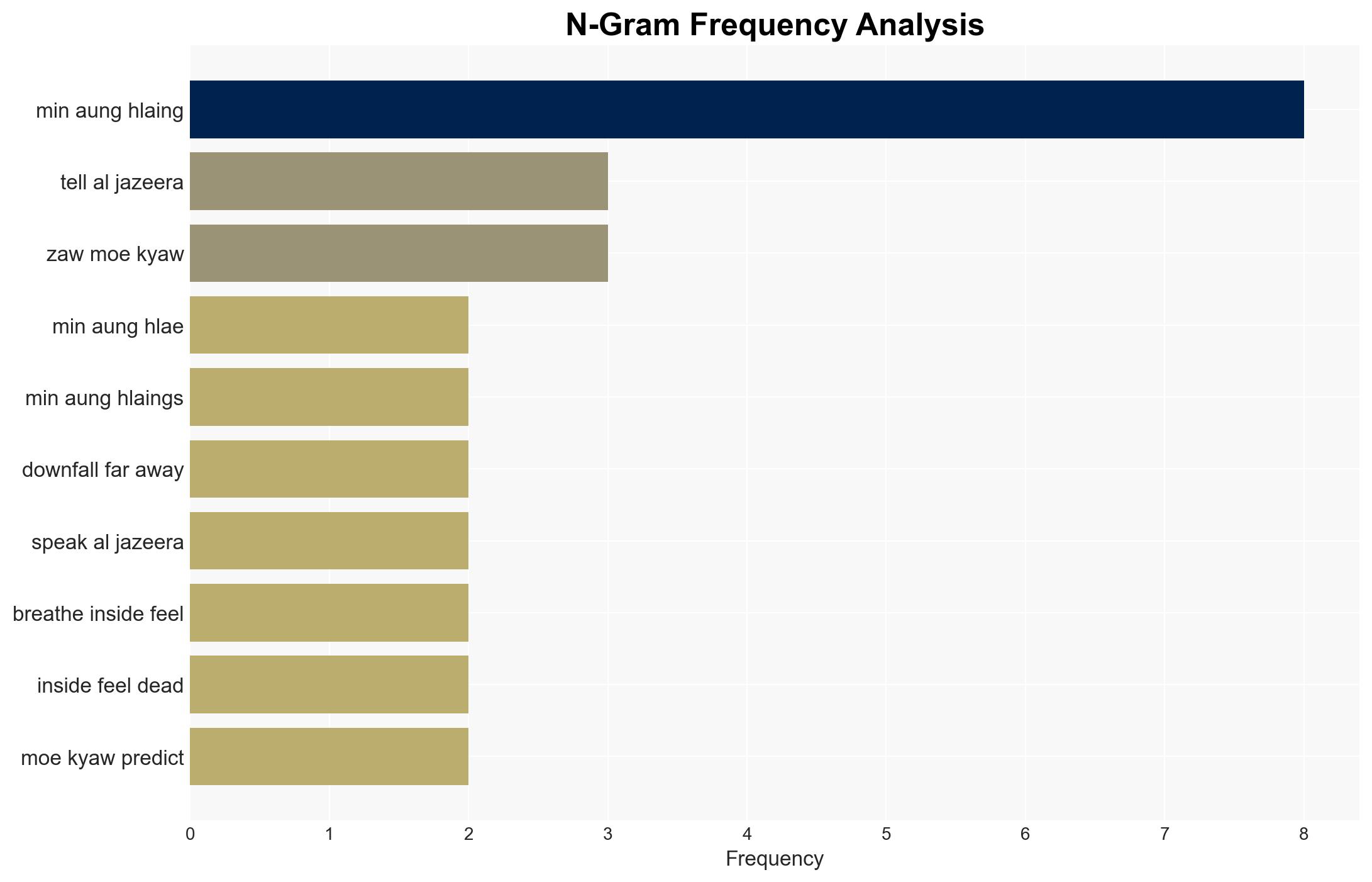Devastating Myanmar earthquake seen as omen of military regimes demise – Al Jazeera English
Published on: 2025-04-01
Intelligence Report: Devastating Myanmar Earthquake Seen as Omen of Military Regime’s Demise – Al Jazeera English
1. BLUF (Bottom Line Up Front)
A recent earthquake in Myanmar is perceived by many as a superstitious omen signaling the potential downfall of the current military regime. The event has heightened tensions and uncertainty within the country, with implications for regional stability and governance. Key findings suggest that the earthquake, coupled with existing socio-political unrest, could catalyze significant changes in Myanmar’s leadership structure. Stakeholders are advised to monitor developments closely and prepare for potential shifts in the political landscape.
2. Detailed Analysis
The following structured analytic techniques have been applied for this analysis:
General Analysis
The earthquake in Myanmar, which resulted in significant casualties and destruction, is viewed by many as a divine judgment against the military regime. This perception is compounded by the regime’s historical reliance on astrology and superstition, as exemplified by past leaders. The earthquake’s timing, coinciding with significant astrological events, has fueled speculation about impending political change. The regime’s focus on rituals and superstitions, rather than pragmatic governance, may undermine its credibility and effectiveness in managing the crisis.
3. Implications and Strategic Risks
The earthquake and its perceived implications pose several strategic risks:
- National Security: Increased civil unrest and potential for escalated conflict as opposition groups may be emboldened by the perceived omen.
- Regional Stability: Potential for spillover effects into neighboring countries if political instability leads to refugee flows or cross-border tensions.
- Economic Interests: Disruption to economic activities and investor confidence, particularly if the regime’s focus remains on superstitions rather than recovery efforts.
4. Recommendations and Outlook
Recommendations:
- Encourage diplomatic engagement with Myanmar to promote stability and support humanitarian efforts.
- Monitor socio-political developments closely to anticipate potential leadership changes and adjust foreign policy accordingly.
- Support initiatives that strengthen civil society and democratic institutions in Myanmar.
Outlook:
Best-case scenario: The regime acknowledges the need for reform and engages in dialogue with opposition groups, leading to a peaceful transition of power.
Worst-case scenario: Continued reliance on superstitions and ineffective governance exacerbates civil unrest, leading to widespread violence and regional instability.
Most likely outcome: Incremental changes in leadership and governance, with ongoing tensions and sporadic unrest as the regime attempts to maintain control.
5. Key Individuals and Entities
The report mentions significant individuals such as Min Aung Hlaing and historical figures like Ne Win and Shwe. These individuals are central to understanding the current socio-political dynamics in Myanmar.





